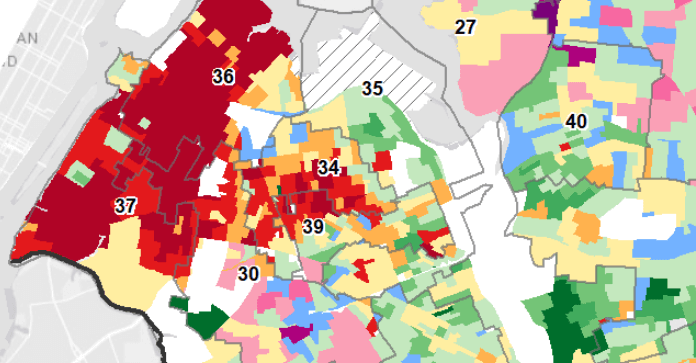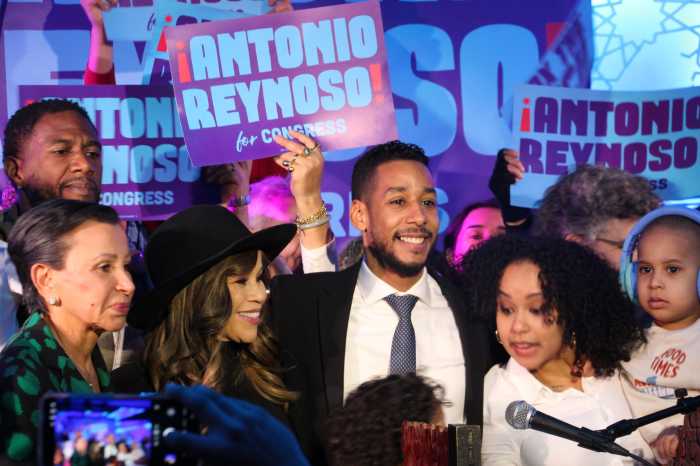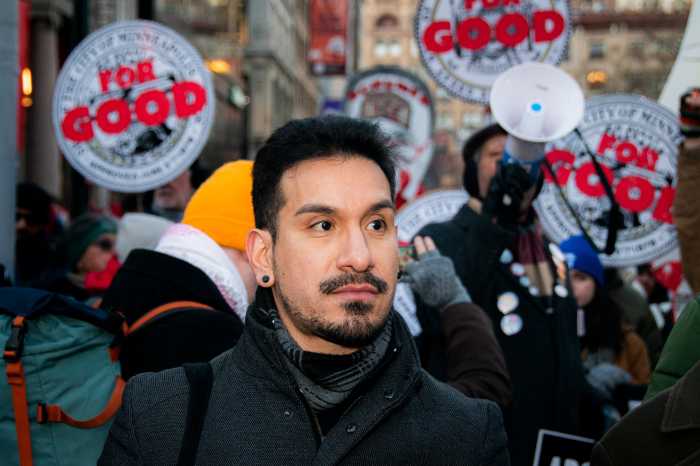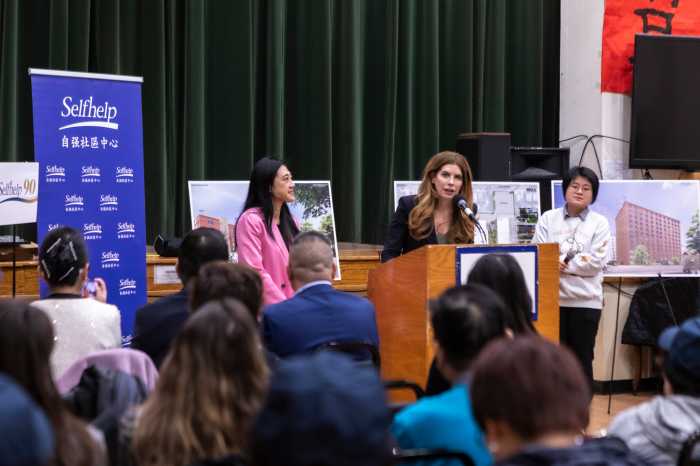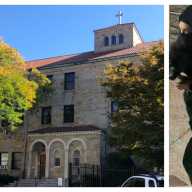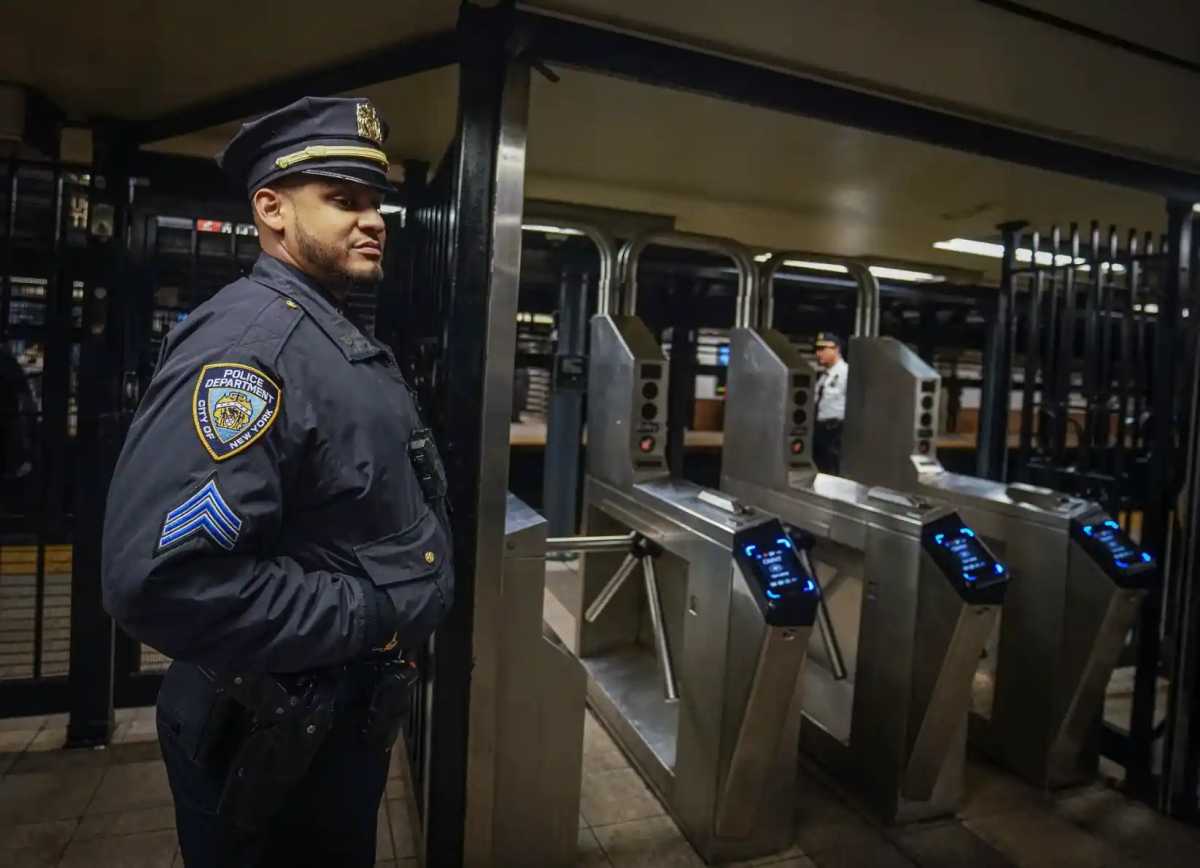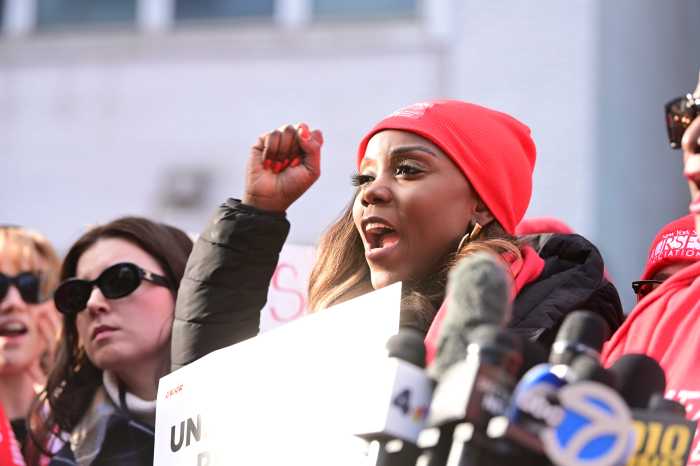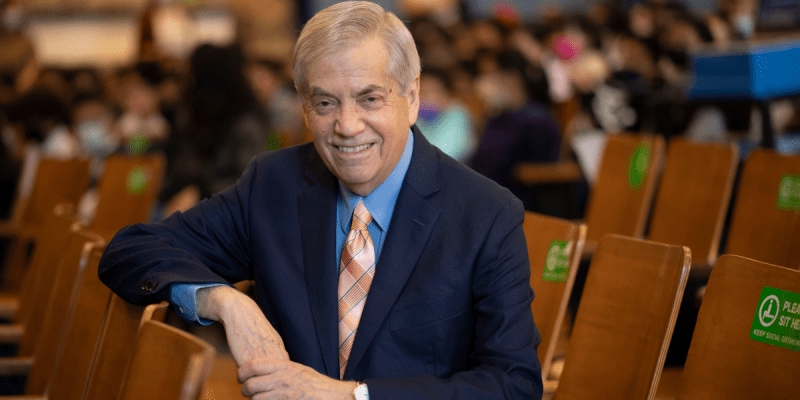While Tiffany Cabán holds a 1,100-vote lead over Borough President Melinda Katz, with a count of absentee ballots pending in the Queens district attorney primary, maps from CUNY Graduate Center show election districts that went heavy for the insurgent Democratic Socialist.
Not only does the research in the maps depict territories clearly more dedicated to Cabán, but they also show that the public defender posed a surprise challenge to Katz in the borough president’s own turf: Forest Hills and Kew Gardens.
Katz dominated in the southeast, while retired Judge Gregory Lasak swayed majorities in traditional conservative strongholds across Queens in the northeast, Howard Beach and the western Rockaway Peninsula.
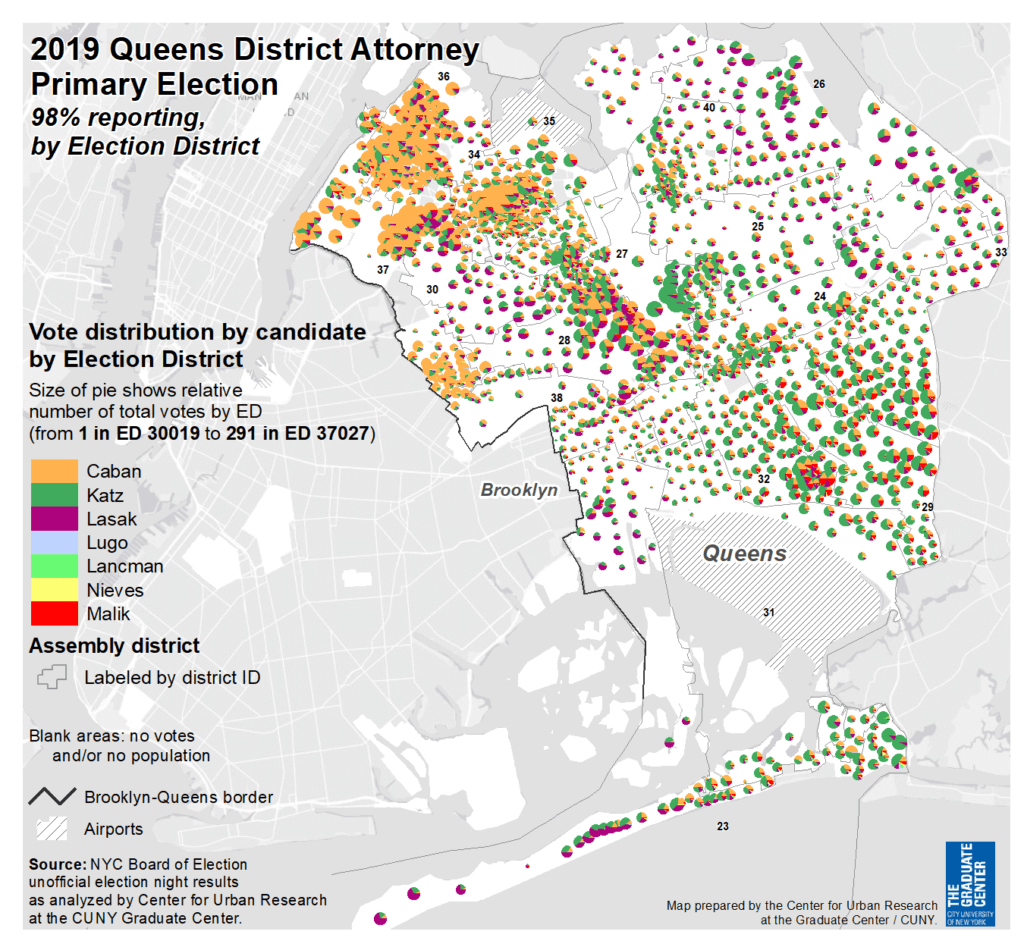
About 28 to 50 percent of votes in Queensbridge and Astoria Houses went to Katz, giving her the advantage in those election districts. But they were enclaves in what turned out to be Cabán country, contrasted by deep red indicating 60 to 95 percent of voters choosing Cabán over the six other candidates on the ballot.
Approximately 70 to 100 percent of voters chose Katz in Far Rockaway districts, while parts of Fresh Meadows also voted heavily for the borough president, whose term is up in 2021.
After the polls closed on June 25, Katz and Congressman Gregory Meeks – Queens County Democratic Party chair – said they would seek a full count of absentee paper ballots that they believed would tip the race in Katz’s favor.
The city Board of Elections count of about 3,400 absentee ballots is scheduled for July 3. After the count, it will certify a primary winner.
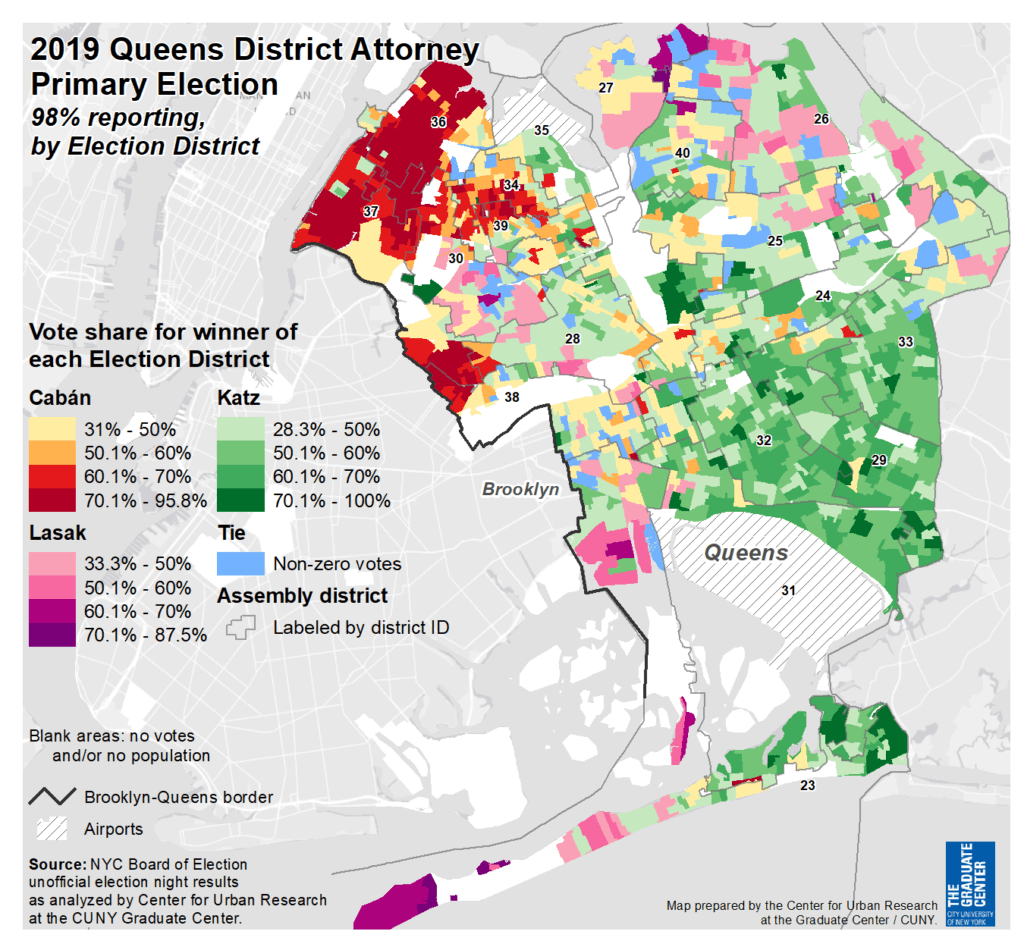
“When you look at the map you realize there are many more election districts where Cabán received 70 percent or more of the vote than Borough President Katz did, so supporters who turned out for Cabán really turned out more strongly,” said Steven Romalewski, who heads up the CUNY Mapping Service, told QNS. “There are almost two poles of support: there’s western Queens and southeastern Queens. But between all of that there is a lot of mixed support. The votes weren’t strongly for one candidate or another.”
“What that tells me is that Borough President Katz could have done a lot better, but she didn’t,” he added.
Romalewski pointed out that although Katz’s support is depicted in green across wider swaths of the first map, the pie chart map illustrates just how much Cabán and other candidates may have watered-down the vote.
“I think it’s premature and incomplete to say that Cabán is the candidate of places that people consider are gentrifying. She got support in a lot of other places, maybe not enough support to win those election districts but still she made a strong showing in many parts of the borough,” Romalewski added. “It’s not that she did poorly, but I would have imagined it to be much stronger.”
Romalewski also said this was an election with low voter turnout, which only 11 percent of registered Democrats making their way to the polls.
Queens has not seen a competitive race for DA in over 28 years, since Richard Brown was appointed to succeed John Santucci, and while other counties have brought reforms to the office, policies have remained mostly unchanged.
Lasak, on the campaign trail, claimed that while he worked to overturn wrongful convictions during his time in the DA’s office, Brown was resistant to creating an official unit that would vindicate innocent people sitting behind bars for crimes they did not commit.
And as the criminal justice community has long debated eliminating cash bail, Albany only recently voted on a statewide reform this year in April.
But while the office under Brown maintained a steady, tough-on-crime attitude for 28 years, those who carry on Brown’s legacy, such as acting DA John Ryan, have defended the late Brown as a fighter who made the borough a safer place.
While Cabán’s campaign rarely took issue with Brown’s policies directly, she ran on a platform that called for zero cash bail, an end to prosecutions for low-level drug possession or sex work as well as advocating for an end to incarceration with a motto of “no new jails.”
Cabán, whose campaign was slow to raise funds or create a stable organization, quickly picked up steam in the final weeks before the primary, buoyed in part by high-profile endorsements from Congresswoman Alexandria Ocasio-Cortez, Philadelphia DA Larry Krasner, and Senators Elizabeth Warren and Bernie Sanders.

